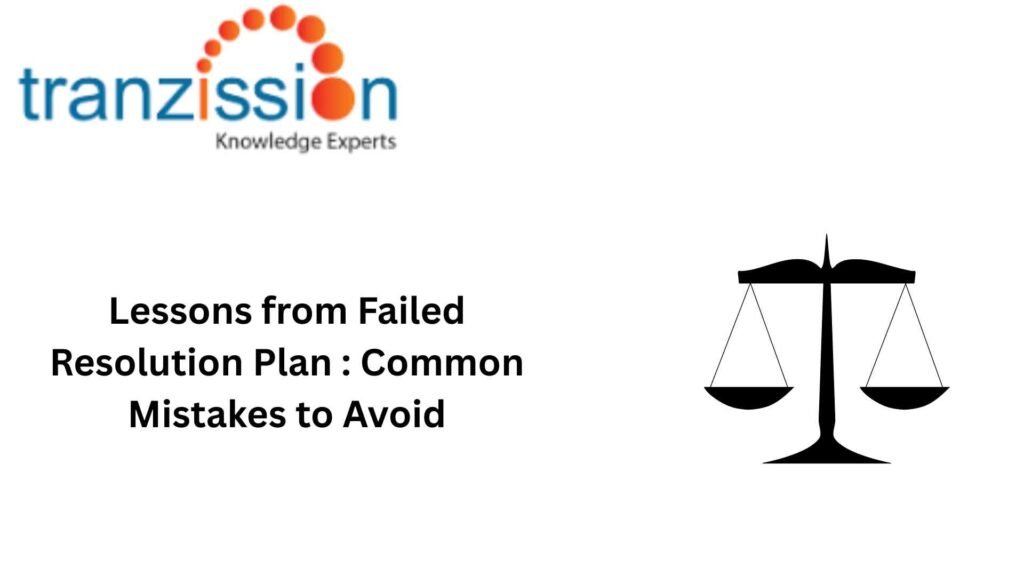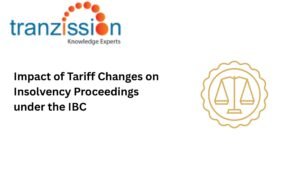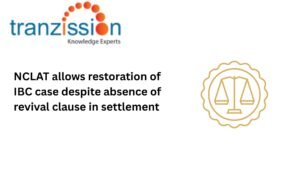
Lessons from Failed Resolution Plan : Common Mistakes to Avoid

Table of Contents
“Resolution plan” is not explicitly defined; however, as per the IBC provisions, it is important to resolve the financial difficulties of a company undergoing insolvency proceedings. It is essentially a proposal for a resolution applicant to resolve the company’s financial problems, aiming to restore it as a going concern. Section 30 outlines the process for submitting and approving a resolution plan for the corporate debtor. This section specifies the requirements for a valid resolution plan, including ensuring it provides for the payment of insolvency resolution process costs, operational creditors, and financial creditors. The Committee of Creditors (CoC) and the National Company Law Tribunal (NCLT) review the plan and decide on its approval.
Objectives of a Resolution Plan:
The primary objective of a resolution plan is to revive the financially distressed corporate debtor and ensure the maximisation of value for all stakeholders, including creditors. It aims to find a viable way to rehabilitate the corporate debtor, rather than liquidation, and to provide a structured process for resolving the insolvency.
Understanding Plan Failures
Definition of a Failed Resolution Plan:
A failed resolution plan means a plan for resolving a company from insolvency that has not been successfully implemented or has been approved but not adhered to by the resolution applicant. This can happen due to various reasons, including non-compliance with the terms of the resolution plan, failure to meet financial obligations, or inability to secure necessary approvals.
Consequences of Plan Failure:
The failure of resolution plans can lead to the liquidation of the corporate debtor, forfeiture of the resolution applicant’s performance security, and potential legal consequences for those who knowingly and wilfully contravene the terms of the approved plan.
Common Mistakes Leading to Resolution Plan Failures
The actions of stakeholders, such as resolution applicants, the CoC, and resolution professionals, can lead to the failure of resolution plans:
- Resolution applicants may overestimate the value or future potential of certain assets or ignore operational and regulatory risks.
- Stakeholders may face pending litigation or not factor in regulatory approvals. Further, there may be delays in equity infusion or debt restructuring.
- Stakeholders may fail to engage with operational creditors, employees, or regulators. This lack of clarity negatively affects the timeline of the insolvency process and deliverables.
Key Lessons for Stakeholders
For Resolution Applicants:
Resolution applicants should conduct thorough due diligence to assess the viability of the corporate debtor and the feasibility of their proposed resolution plan. This includes a comprehensive review of the company’s financial records, operations, and legal obligations. They should ensure financial capability and regulatory preparedness to reach a viable resolution plan.
For the Committee of Creditors:
The CoC has the commercial wisdom to assess and decide on the merits of a resolution plan, and its decision is generally upheld unless there are significant irregularities or statutory violations. Its members avoid selecting plans based solely on haircut percentages and consider long-term feasibility and the track record of the applicant.
For Resolution Professionals:
The failure of resolution professionals to conduct comprehensive due diligence on the debtor’s assets, liabilities, and financial health can lead ot a resolution that is unrealistic or unsustainable. They need to scrutinize the implementation roadmap critically and highlight inconsistencies and risks in the plan to the CoC.
Best Practices to Improve Success Rate
- The Insolvency and Bankruptcy Board of India (IBBI) should mandate upfront bank guarantees or performance bonds from the applicant.
- The IBBI needs to incorporate measurable deliverables with deadlines in the plan.
- The resolution professional and CoC members need to ensure legal and regulatory vetting of the plan before NCLT approval.
Conclusion: Failed Resolution Plan
Failed resolution plan in insolvency highlight the importance of feasibility, viability, and clear implementation timelines. They also underscore the need for robust due diligence, accurate information disclosure, and effective stakeholder engagement. Resolution plans that rely on overly optimistic projections or fail to adequately account for market conditions and operational challenges are likely to fail. Furthermore, lessons from failed plans emphasise the importance of timely and efficient processes to avoid prolonged delays and potential harm to the corporate debtor. Hence, all stakeholders need to ensure accountability, due diligence, and transparency to reach a successful plan.
Read more :





